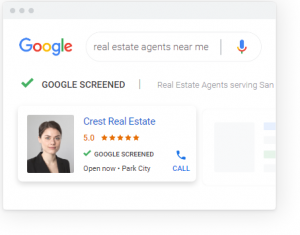
It’s no secret that keyword research is vital to both SEO professionals and PPC advertisers — but what do keywords have to do with email marketing?
You might think that keyword research is irrelevant to your email marketing campaigns, but on the contrary, it’s actually an excellent way to get insight into how your prospects are behaving online.
Keyword research doesn’t just tell you what your audience is searching for — it tells you what topics they’re most interested in.
The higher the search volume for a particular term, the stronger interest in that topic is. Accordingly, by using frequently searched keywords in your email subject lines and copy, you can achieve higher open rates. The more interested someone is in a topic, the more likely they are to notice and open an email about it.
In this post, we’ll look at several ways you can use keyword research for more effective email marketing.
#1: Identify Trending Topics
The first application of keyword research is identifying trending topics that you can leverage in your email marketing campaigns.
Again, keyword search volume directly correlates to audience interest — the greater the search volume, the stronger the interest. This means that topics that are trending are likely to be of interest to your subscribers.
Example: Green Construction Business
Let’s say your company specializes in energy-efficient construction materials. How can you use keyword research to capitalize on trending topics in your space?
Below is a screenshot from Google’s Keyword Planner, using the base search term “green construction.”

As you can see, search volume for the keyword “green construction” has an average of 1,000 monthly searches, and this term is considered of medium competition. However, that’s not what we’re interested in. If you were to scroll down, you’d see a list of suggested topics relevant to green construction, along with their search volumes:

With just a cursory search, we can see that the terms “leed” and “leed certification” have significantly higher search volumes than the other terms listed (with average monthly searches of 27,100 and 18,100, respectively). This means that interest in LEED is super strong, making it an ideal topic for an email campaign.
Based on this data, you could put together an email message focusing on this topic that connects LEED certification with your green construction material business, such as:
- Why LEED Certification Is Essential for Your Construction Business
- Four Things to Know Before Applying for LEED Certification
- How to Prepare Your Application for LEED Certification
- What to Look For in a LEED Construction Partner
These are just some examples of emails you could send to your subscriber base using the data from a quick Keyword Planner search.
#2: Craft Irresistible Subject Lines
The best email marketers know that, when it comes to the success of a campaign, excellent subject lines are essential. Without a compelling hook, your open rates are almost guaranteed to suffer. Fortunately, keyword research can help you craft irresistible subject lines that will lift your open rates to new heights.
Example: Insurance Company
For our next example, let’s say you run a small insurance company. You know that search queries for keywords like “auto insurance” and “cheap car insurance” rank highly in terms of search volumes, but what about other types of insurance? You want to increase your open rates, and turn to the Keyword Planner for inspiration.

See how high search volumes for the query “renters insurance” are in comparison to the other terms? This represents a prime opportunity to leverage a high-volume keyword in your email subject lines, potentially increasing your open rates.
In this example, you could try:
- What You’re Risking by Not Having Renters Insurance
- Why Renters Insurance Is Essential for First-Time Tenants
- Should You Demand Your Tenants Have Renters Insurance?
- Are You Still Liable for Some Claims Even If Your Tenants Have Renters Insurance?
Obviously you’d have to segment your database by interest, income, rental status etc., but it’s a decent starting point.
Keyword research can make good subject lines great, so don’t hit “Send” until you’ve checked out some potential keywords to use first — in fact, you can run “renters insurance” through a keyword tool again to drill down and see exactly what kind of information people are looking for on this topic:

Based on this search, you could use these long-tail keywords as the basis of even more content ideas:
- Do I Need Renters Insurance If It Doesn’t Say So In My Lease?
- What Does Renters Insurance Cover?
- Do Renters Insurance Companies Pay Claims If I Lose My Keys?
This approach not only provides you with a ton of ideas for content, but helps you identify niche topics if you start to run short of ideas (which will almost inevitably happen at some point).
#3: Increase Your Subscriber Base with Optimized Content
Of course, one of the greatest challenges facing any email marketer is growing their subscriber base in the first place. One way to accomplish this is to use keyword research to optimize your existing content and make your newsletter more discoverable.
Optimizing your content for discoverability in search engines is essential to growing your subscriber base. Yes, social media promotion is an important tool, but prospective readers also need to be able to find your content on their own.
Using Keyword Tools for SEO
Keyword research tools offer a ton of search data you can use for SEO purposes. Begin by identifying high-volume search queries that are relevant to your business (just as you did when identifying topics for your emails), and produce content that aligns with these keywords.
Let’s say your business specializes in organic produce. You could use a keyword tool to identify suitable topics for your content, and then include an easy way for readers to sign up for your newsletter.
Returning to Keyword Planner, first, we check the search volume and competitiveness of relevant keywords. (If you don’t have an AdWords account, try WordStream’s Free Keyword Tool.)

Seeing that “organic food” is a high-volume search term of medium competitiveness, you could decide to target that keyword in your content. Then, you could write a blog post about the benefits of growing your own organic food…

… include some free reference resources to make your content “stickier”:

… before including a newsletter sign-up form toward the end of the post:

(Previous three images via healthysustainableliving.blogspot.com)
One thing to remember is that, despite the data we saw in the Keyword Planner earlier, a search query like “organic food” is going to be very competitive, making it harder to rank organically (pardon the pun) in the search engine results pages. However, the principle of identifying and targeting keywords for SEO remains largely the same.
Keyword Research Is An Email Marketer’s Secret Weapon
So, we’ve learned that keyword research can be a valuable tool in any email marketer’s arsenal. It can be used to find trending topics for emails that are relevant to your audience, to create more compelling email subject lines, and to help your existing content become more discoverable to grow your subscriber base.
As you start to add keyword research into your email marketing strategy, you’ll be able to use your email reports to see which topics are resonating with your audience.
Test the strategies outlined in this post, and use insights like opens and clicks to see what’s working with your email audience.
(174)







